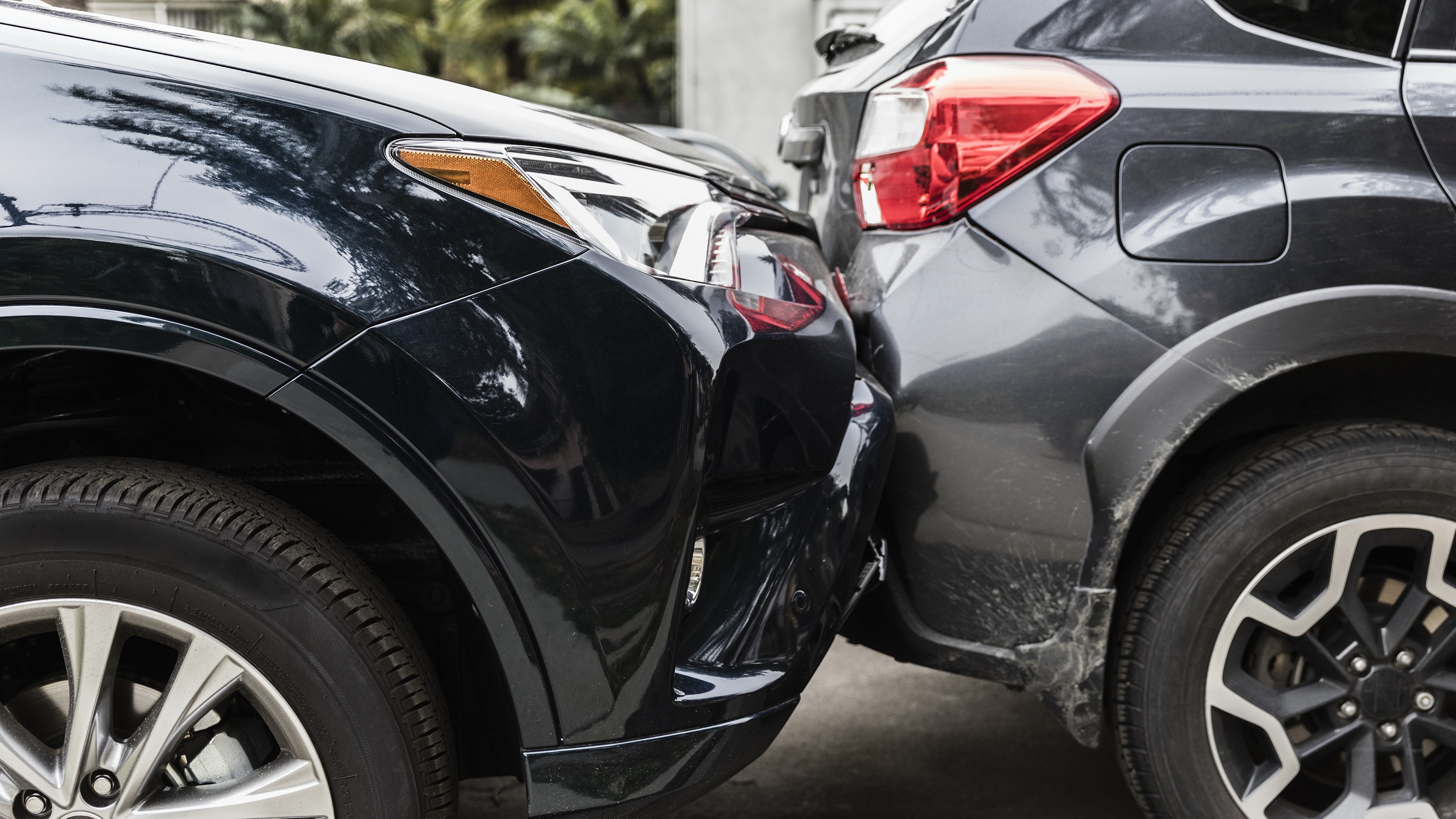How to Save on Homeowners Insurance: Boost Your Deductible
Wondering how to save on homeowners insurance? Boost your home-insurance deductible and you’ll not only reduce your premiums but also avoid filing small claims that could cause a rate hike.

Erin Bendig
Profit and prosper with the best of Kiplinger's advice on investing, taxes, retirement, personal finance and much more. Delivered daily. Enter your email in the box and click Sign Me Up.
You are now subscribed
Your newsletter sign-up was successful
Want to add more newsletters?

Delivered daily
Kiplinger Today
Profit and prosper with the best of Kiplinger's advice on investing, taxes, retirement, personal finance and much more delivered daily. Smart money moves start here.

Sent five days a week
Kiplinger A Step Ahead
Get practical help to make better financial decisions in your everyday life, from spending to savings on top deals.

Delivered daily
Kiplinger Closing Bell
Get today's biggest financial and investing headlines delivered to your inbox every day the U.S. stock market is open.

Sent twice a week
Kiplinger Adviser Intel
Financial pros across the country share best practices and fresh tactics to preserve and grow your wealth.

Delivered weekly
Kiplinger Tax Tips
Trim your federal and state tax bills with practical tax-planning and tax-cutting strategies.

Sent twice a week
Kiplinger Retirement Tips
Your twice-a-week guide to planning and enjoying a financially secure and richly rewarding retirement

Sent bimonthly.
Kiplinger Adviser Angle
Insights for advisers, wealth managers and other financial professionals.

Sent twice a week
Kiplinger Investing Weekly
Your twice-a-week roundup of promising stocks, funds, companies and industries you should consider, ones you should avoid, and why.

Sent weekly for six weeks
Kiplinger Invest for Retirement
Your step-by-step six-part series on how to invest for retirement, from devising a successful strategy to exactly which investments to choose.
Homeowners insurance keeps getting more expensive — premiums increased 13% on average in 2024, with some states seeing rate changes of over 20%, according to S&P Global Market Intelligence. The national average cost of home insurance is $2,181 per year for a policy with a $300,000 dwelling limit, which works out to be around $189 per month, Bankrate reports.
Considering the high costs of everything from groceries to car insurance, you're likely looking for easy ways to save on your homeowner's insurance policy without sacrificing coverage. One way to do so is by raising your deductible.
But how high a deductible can you get on your homeowner's insurance? And if you boost your deductible, how much can you save on premiums?
How to save on homeowners insurance by raising your deductible
Raising your deductible is a good way to reduce your premiums, and it makes you less likely to file small claims that could result in a rate hike. So if your deductible is $500 now, increasing it to $1,000 can lower your premiums by up to 25%, according to the Insurance Information Institute (III).
The higher the deductible, the bigger the premium savings. Let’s say, for example, you have a policy with Fireman’s Fund with a $1,000 deductible and a $3,000 annual premium. You’d save about 24% by boosting your deductible to $2,500, 37% by raising it to $5,000, 47% by raising it to $10,000 and 53% by raising it to $25,000. Compare the premium savings with the extra dollar amount at risk to make sure that boosting your deductible is worthwhile.
Most insurers offer much higher deductibles, too, which is a popular strategy for people who have enough money in emergency funds to cover potential costs. For example, at insurance provider Chubb, about half of the wealthiest customers choose a deductible of $10,000 to $50,000.
“For homes here in Malibu that are valued at $10 million to $25 million, having a $25,000 deductible isn’t out of the ordinary at all,” says Derek Ross, president of Kulchin Ross Insurance Services, an independent agency in Tarzana, Cal.
Use our tool, in partnership with Bankrate, to compare home insurance rates today.
You should file a claim only if it is at least several hundred dollars more than the deductible. “If your insurer raises your rate by 10% for three to five years after you have a claim, that could easily exceed the amount the insurer paid beyond the deductible,” says Ross.
And whatever deductible you do choose, keep enough money in an emergency fund to self-insure up to the deductible — or even a few hundred dollars more.
The risk of self-insuring may not be as high as you think. The average person files a homeowners insurance claim only once every eight to ten years, says Jeanne Salvatore, of the Insurance Information Institute.
You could take the money you save in premiums and add it to your emergency fund each year so that you’re prepared when you do have a claim, recommends Ross. You could also use the extra money to boost your dwelling, property and liability coverage levels by tens of thousands of dollars.
Related Content
Profit and prosper with the best of Kiplinger's advice on investing, taxes, retirement, personal finance and much more. Delivered daily. Enter your email in the box and click Sign Me Up.

As the "Ask Kim" columnist for Kiplinger's Personal Finance, Lankford receives hundreds of personal finance questions from readers every month. She is the author of Rescue Your Financial Life (McGraw-Hill, 2003), The Insurance Maze: How You Can Save Money on Insurance -- and Still Get the Coverage You Need (Kaplan, 2006), Kiplinger's Ask Kim for Money Smart Solutions (Kaplan, 2007) and The Kiplinger/BBB Personal Finance Guide for Military Families. She is frequently featured as a financial expert on television and radio, including NBC's Today Show, CNN, CNBC and National Public Radio.
- Erin BendigPersonal Finance Writer
-
 Quiz: Do You Know How to Avoid the "Medigap Trap?"
Quiz: Do You Know How to Avoid the "Medigap Trap?"Quiz Test your basic knowledge of the "Medigap Trap" in our quick quiz.
-
 5 Top Tax-Efficient Mutual Funds for Smarter Investing
5 Top Tax-Efficient Mutual Funds for Smarter InvestingMutual funds are many things, but "tax-friendly" usually isn't one of them. These are the exceptions.
-
 AI Sparks Existential Crisis for Software Stocks
AI Sparks Existential Crisis for Software StocksThe Kiplinger Letter Fears that SaaS subscription software could be rendered obsolete by artificial intelligence make investors jittery.
-
 4 At-Fault States With No-Fault Insurance Rules You Should Know
4 At-Fault States With No-Fault Insurance Rules You Should KnowThink you live in an at-fault car insurance state? These four still have some tricky no-fault insurance laws you should know about.
-
 Is There a Downside to Switching Your Insurance Frequently?
Is There a Downside to Switching Your Insurance Frequently?You keep finding lower rates every time you shop for insurance. Is there any reason not to take the better deal?
-
 No-Fault Car Insurance States and What Drivers Need to Know
No-Fault Car Insurance States and What Drivers Need to KnowA breakdown of the confusing rules around no-fault car insurance in every state where it exists.
-
 Why Your Home Insurance Might Not Protect You If Someone Else Lives There
Why Your Home Insurance Might Not Protect You If Someone Else Lives ThereLetting a relative stay in a second home or inherited property can quietly change your insurance coverage and leave you exposed to costly liability claims.
-
 The 1-Month Rule for Setting Your Car Insurance Deductible
The 1-Month Rule for Setting Your Car Insurance DeductibleThe ideal car insurance deductible balances risk and savings. Here's how to find it.
-
 How Drones Can Affect Your Insurance Coverage
How Drones Can Affect Your Insurance CoverageHow insurers are using aerial imagery to assess homes, the backlash from policyholders and how state regulators are trying to rein in the practice.
-
 Does Your Car Insurer Need to Know All Your Kids? Michigan Cases Raise Question
Does Your Car Insurer Need to Know All Your Kids? Michigan Cases Raise QuestionWho you list on your policy matters more than most drivers realize, especially when it comes to who lives in your home.
-
 Is Home Insurance Tax Deductible?
Is Home Insurance Tax Deductible?With home insurance rates on the rise, you might be hoping to at least claim the cost as a tax deduction. Here's what you need to know ahead of tax season.